
Cornus kousa (Japanese Dogwood, Kousa Dogwood) red berry fruit hanging
Cornus kousa is a dogwood variety that's native to Korea and Japan. It grows with an wide, overarching bearing and its size depends on how its growing environment supports it. Indeed, though it typically peaks at 6 to 10 feet tall (2 to 3 m), in good conditions it towers to nearly 30 feet (10 meters).

Fruits of the Japanese kousa dogwood (Cornus kousa), Bavaria, Germany
Cornelian-cherry dogwood, one of the first trees to flower in spring, is a small, 20 to 25 feet high tree or large shrub. It thrives in well-drained urban conditions as a specimen plant, in masses, near a patio, or as a hedge. Tight clusters of small star-shaped yellow flowers bloom in early spring, covering the tree before leaves emerge.

Cornus Kousa fruit also known Japanese Dogwood Stock Photo Alamy
Updated April 2022. Kousa dogwood ( Cornus kousa) is a small tree or shrub native to Asia that is now a widely popular landscape plant in the US. And it's easy to understand why… In Spring it will display a mass of delicate star-shaped flowers. And by summer you'll have an abundance of peculiarly shaped but sweet tasting fruits.
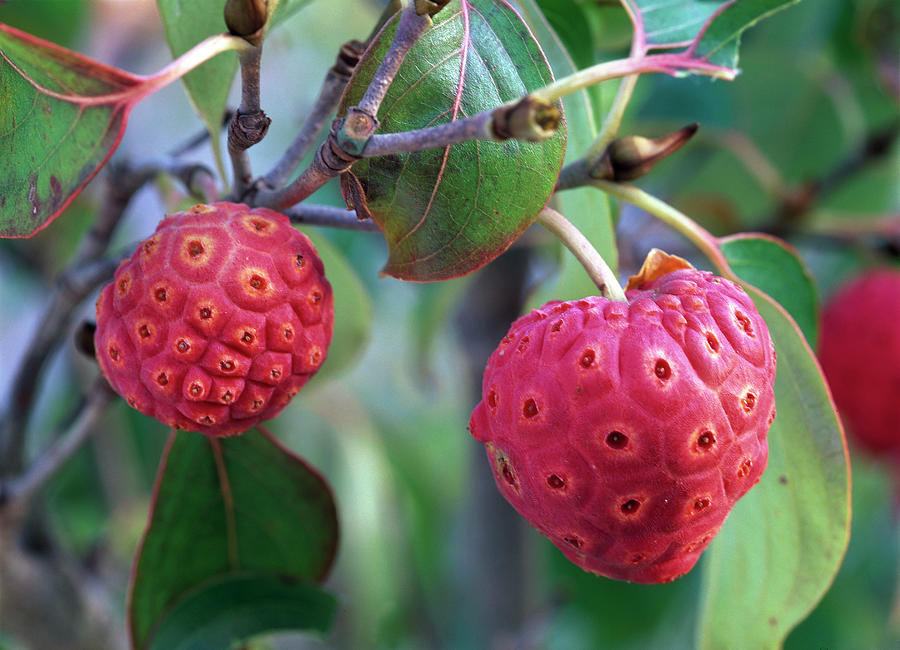
Cornus Kousa japanese Flower Dogwood, Fruits Photograph by Friedrich
Cornus kousaF.Buerger ex Hance or Cornus kousaHance subsp. kousa - Japanese dogwood, native to Japan and Korea. Cornus kousaHance subsp. chinensis(Osborn) Q. Y. Xiang - Chinese dogwood, native to China. This variety supposedly flowers more freely and produces larger flower bracts, with leaves that are also said to be larger than average.

Kousa dogwood fruit cornus kousa hires stock photography and images
Cornus is also the Latin name for cornelian cherry ( Cornus mas ). May also be related to the Greek kerasos meaning "cherry". Specific epithet is the Japanese name for this species. 'Satomi' is an upright, spreading, pink-flowered cultivar that typically matures to 12-15' (less frequently to 20') tall.
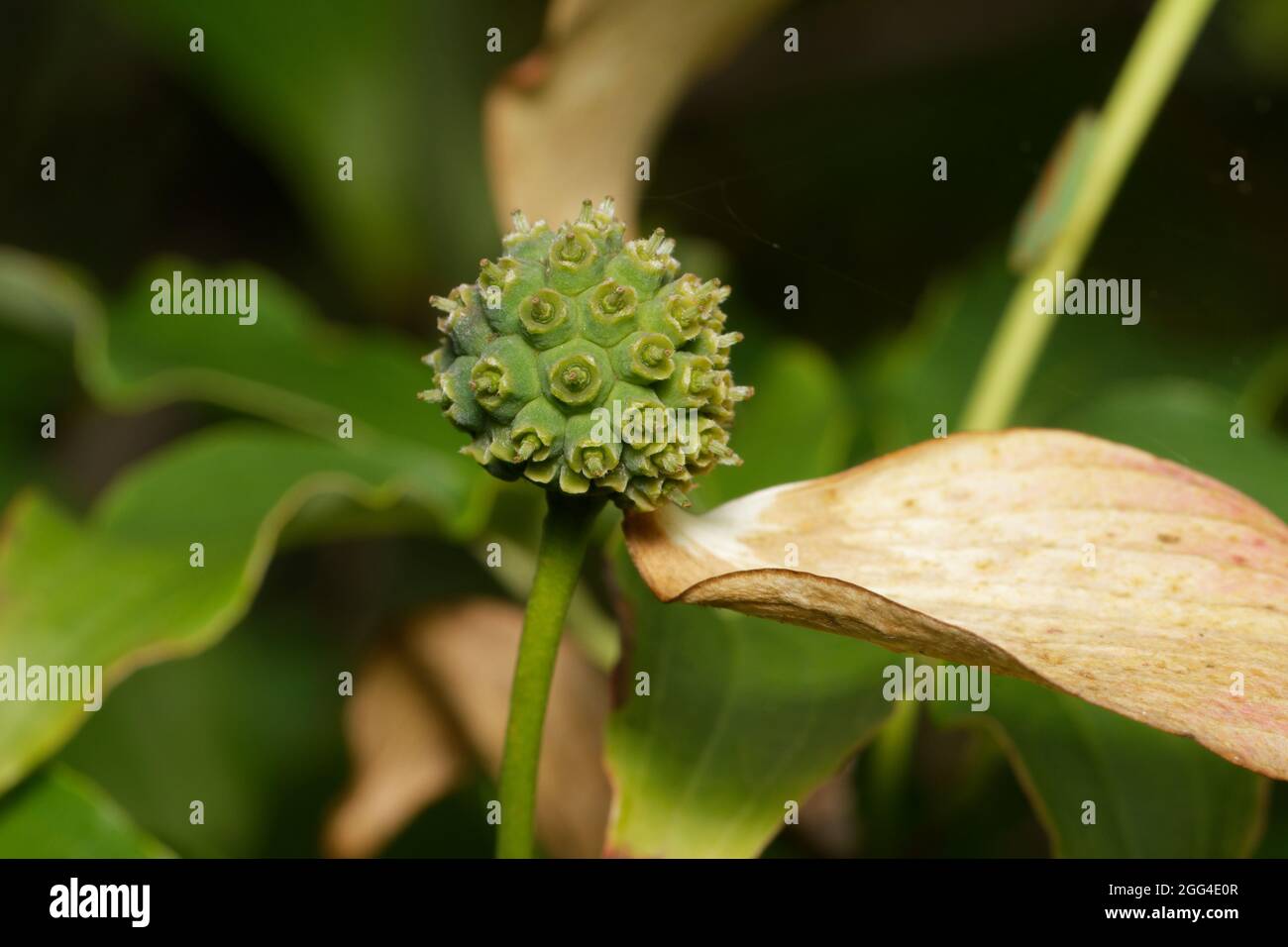
cornus kousa unripe green fruit of a Japanese dogwood Stock Photo Alamy
Kousa Dogwood (Japanese Dogwood) Hardiness Zones: 5 - 8 Average shipping height: 2' - 3' Select an option for shipping dates Bare Root or Potted? Select Option Bare Root Member Price $12.99 Reg. Price $16.99 Potted - 1 Gallon Container Member Price $49.99 Reg. Price $59.99 Potted - 3 Gallon Container Member Price $79.99 Reg. Price $89.99 i h

Kousa dogwood Garden Housecalls
The name, "kousa," is simply the word for the plant in Japanese. It's also often called Japanese dogwood, Chinese dogwood, or Korean dogwood. It closely resembles the North American native, flowering dogwood ( Cornus florida), but is less vulnerable to disease.

Japanese Dogwood Beautiful Fruit Stock Image Image of columbia
Kousa Dogwood Fruit is a small, red-orange berry that grows on a deciduous tree native to East Asia. It has been used in traditional Chinese medicine for centuries due to its health benefits. The fruit is sweet and slightly tart, with flesh similar to an apple. Kousa Dogwood Fruit is high in fiber, vitamins, and minerals and contains powerful.
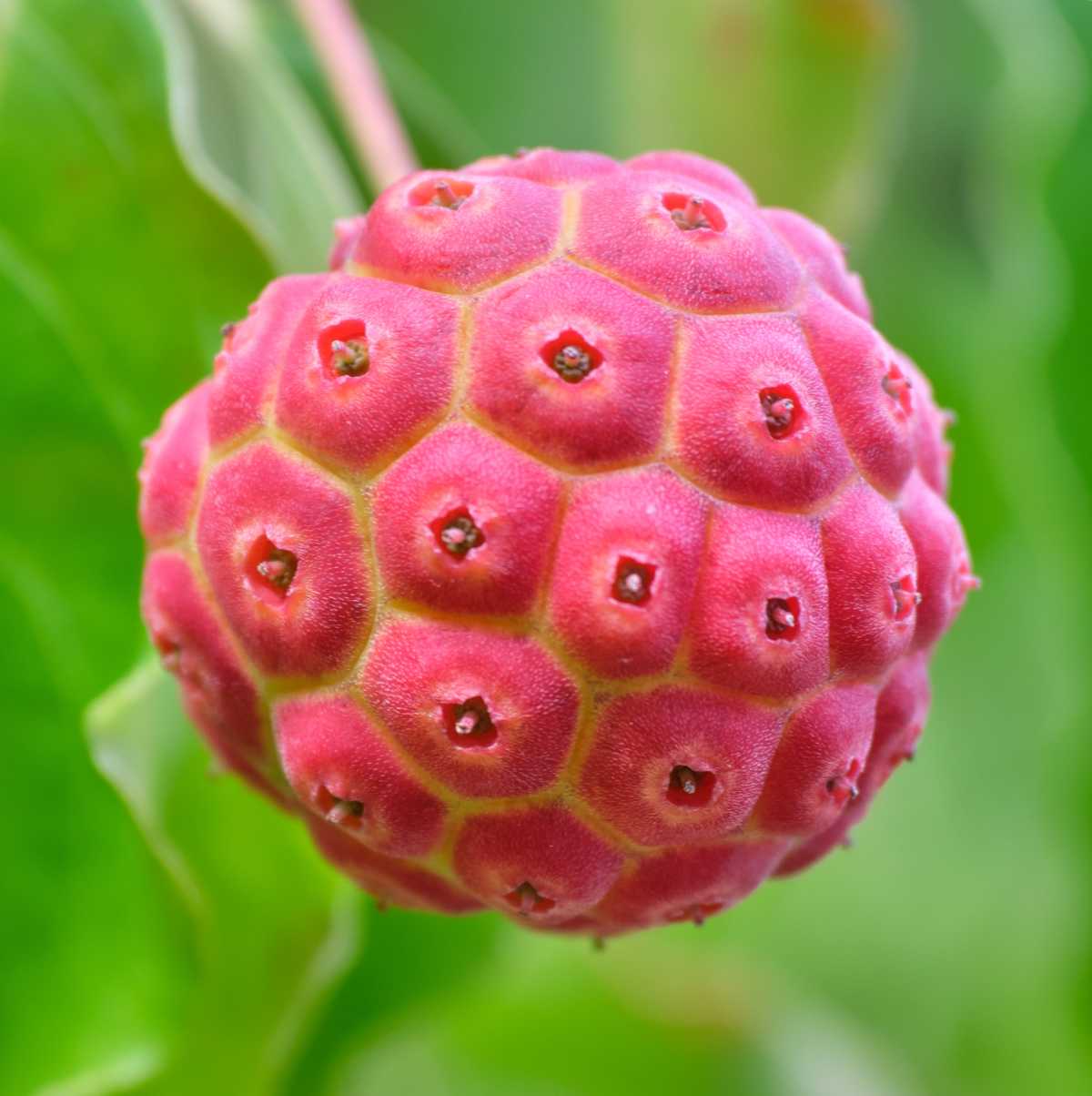
Japanese dogwood, striking flowers and fruits
Dogwood fruit, or Asiatic cornelian cherry fruit, is from the Japanese dogwood scientifically named Cornus kousa. Other names for the tree include Japanese cornelian cherry, Korean dogwood, Chinese dogwood, strawberry dog wood tree, and kousa dogwood. It is called shanzhuyu in pinyin Chinese.
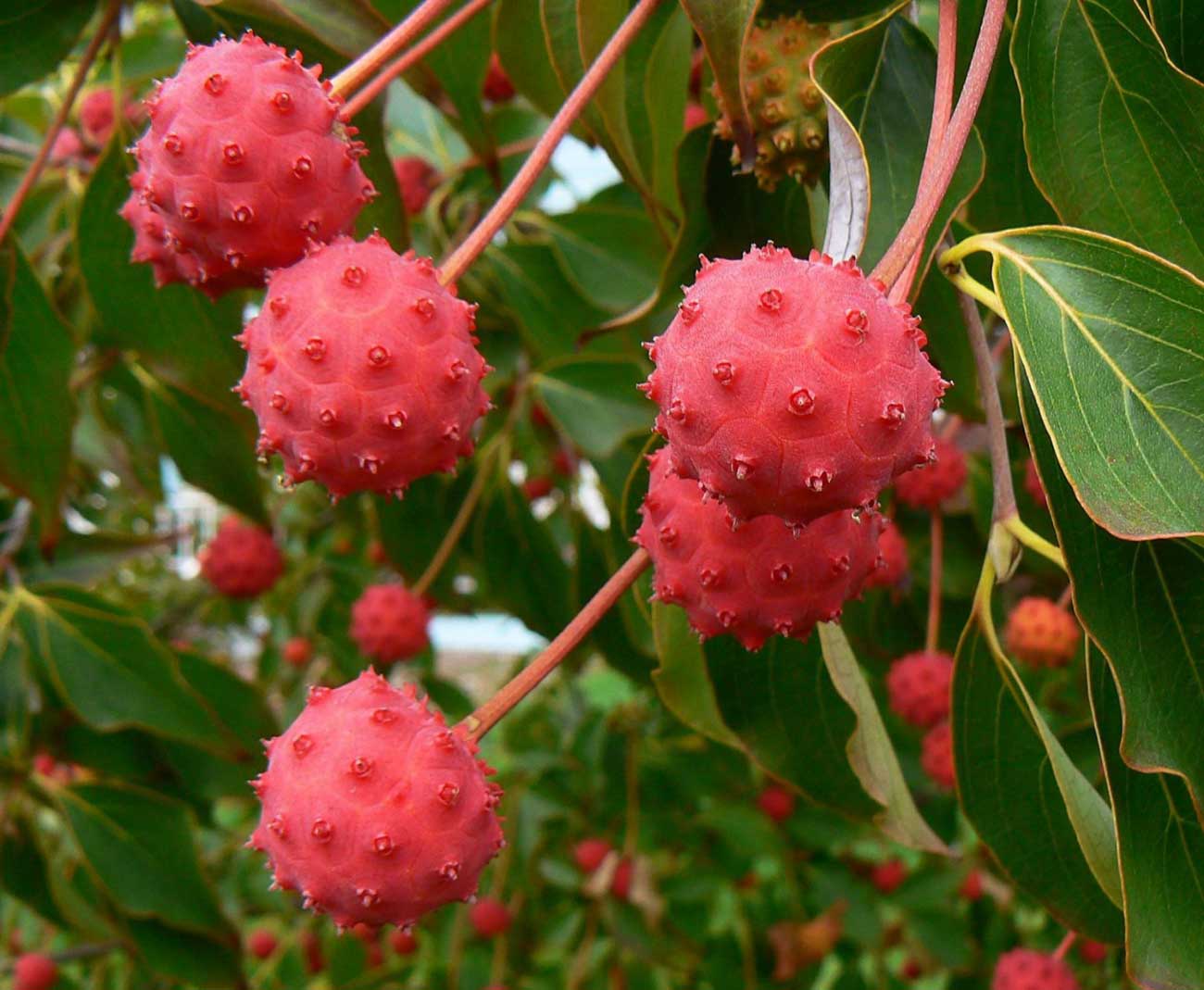
Kousa Dogwood Fruit (Cornus kousa) Does it really have Health Benefits?
Cynoxylon kousa Dendrobenthamia japonica Phonetic Spelling KOR-nus KOO-sa Description The Kousa dogwood is a handsome, small- to medium-sized tree reaching a mature height of 30 feet. Sometimes referred to as the Chinese dogwood, this Asian is a cousin to our native flowering dogwood. It can be used as a specimen plant or in shrub borders.
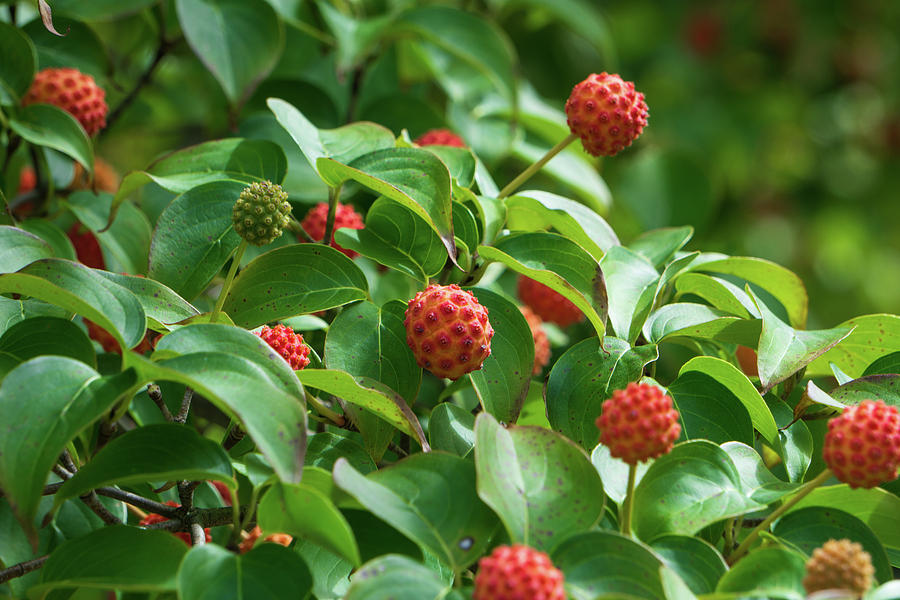
Kousa Dogwood Fruit Photograph by Jason Fink Pixels
It's native to Japan, Korea, and China, and produces an edible fruit in late summer. Kousa dogwood fruit - edible and quite delicious! The fruit of Kousa dogwoods is often called a berry, but it's technically an aggregate fruit that somewhat resembles a raspberry, although it's much larger. When do you harvest and eat Kousa dogwood fruit?
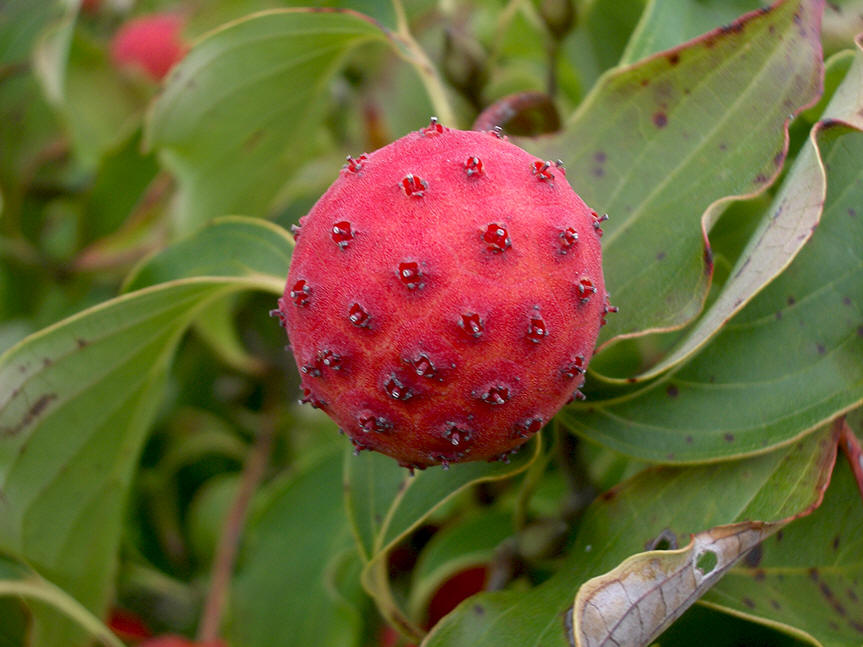
The Fruit of Cornus Kousa Dogwood Tree
from 400 cm to 600 cm Growth characteristics sweeping upright Show more Origin The Japanese dogwood (Cornus kousa subsp. kousa), similar to the Chinese dogwood (Cornus kousa subsp. chinensis) is a sub-species of the Asian dogwood (Cornus kousa). In its garden form it is considered one of the richest flowering of the group of Dogwoods.

Japanese Dogwood Clare Bryden
Japanese flowering dogwood is cultivated in its East Asian homeland not only for its distinctive flowers, but also for the fruits. Their appearance is reminiscent of raspberries or litchis, but they don't taste as aromatic as these. The flesh is orange in color and has a gelatinous consistency.

Japanese Dogwood Beautiful Fruit Stock Image Image of nature, plant
Cornus kousa Growing and Care Guide. Scientific Name: Cornus kousa Common Name(s): Kousa Dogwood, Japanese Kousa, Chinese Kousa, Korean Kousa, Kousa Growing Zone (USA / UK Hardiness): 5 to 8 / H6 Plant Details. Life Cycle / Plant Type: Deciduous, bushy tree. Plant Height: 15 to 40 feet (4.5 to 12 m). Plant Spread: 15 to 32 inches (4.5 to 10 m). Blooms: Late spring and early summer.

Is Kousa Dogwood Fruit Edible? Healing Picks
Japanese Dogwood is a type of ornamental, flowering tree, that also goes by the name of Kousa Dogwood and Chinese Dogwood. It is known for its ability to flower in abundance, with blooms that are actually made from leaf bracts rather than petals. Japanese Dogwood trees are quite compact, making them suitable for small to medium gardens.
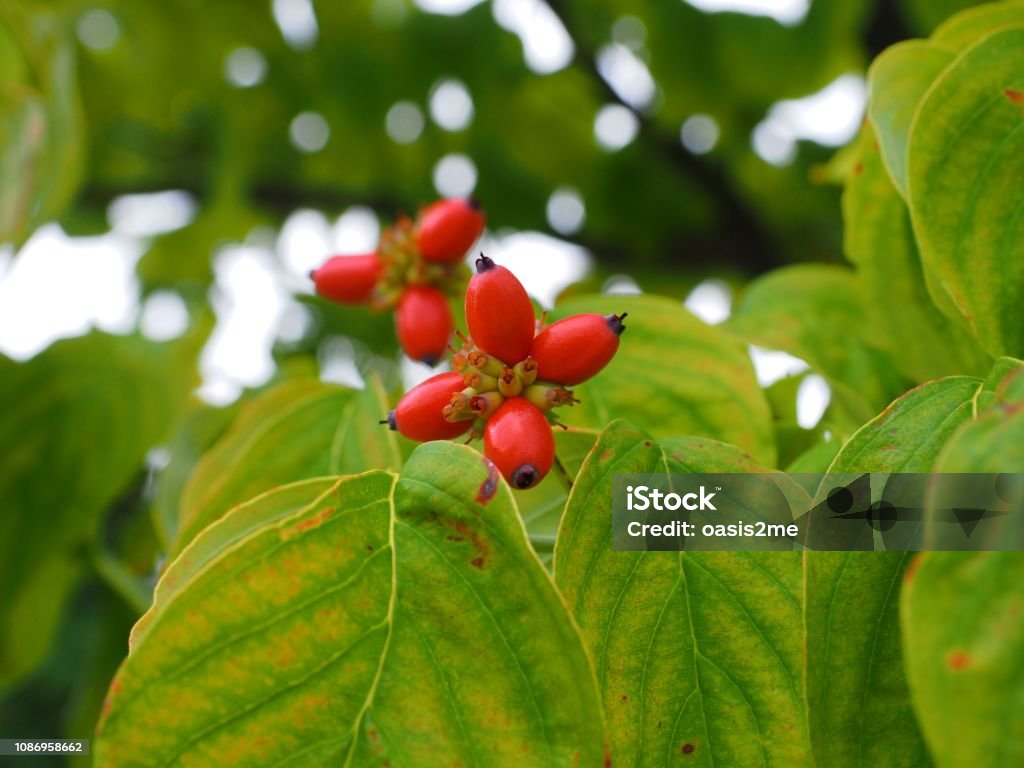
Dogwood Fruits Called Hanamizuki In Japan Stock Photo Download Image
The fruit is native to North America and has a sweet flavor that is similar to grapes and cherries. Kousa Dogwood fruits are used in both hot and cold drinks. The fruit can also be used for both savory and sweet dishes. These recipes require only a few ingredients and are very simple to make.